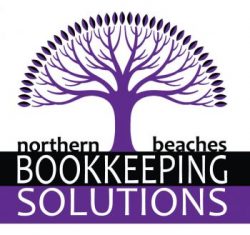Behind With Your Super Payments? How to Catch Up and Avoid ATO Penalties
Falling behind on superannuation payments can have serious consequences for small businesses, including financial penalties and damaged employee trust. If you’re behind on super payments, it’s important to take immediate action to catch up and stay compliant with ATO regulations. Here’s a step-by-step guide to getting back on track.
What Happens If You’re Behind on Super Payments?
If superannuation payments are not paid by the quarterly due date, the ATO may impose a Superannuation Guarantee Charge (SGC). This charge includes:
- Unpaid Super Amount: The amount of super that should have been paid to employees.
- Interest on Unpaid Super: Currently set at 10% per annum, calculated from the due date.
- Administration Fee: $20 per employee per quarter for missed payments.
Steps to Catch Up on Unpaid Superannuation
To resolve unpaid superannuation and minimise penalties, follow these steps:
- 1. Calculate Unpaid Super: Review payroll records to identify missed super payments and calculate the total amount owed.
- 2. Lodge an SGC Statement: Complete a Superannuation Guarantee Charge (SGC) statement to report unpaid super to the ATO.
- 3. Pay the SGC: Pay the SGC directly to the ATO, including unpaid super, interest, and administration fees.
- 4. Update Payroll Records: Adjust payroll records to reflect paid super and ensure future contributions are calculated correctly.
- 5. Implement a Payment Plan: If you can’t pay the full SGC amount upfront, contact the ATO to discuss a payment plan.
How to Avoid Falling Behind on Super Payments
Preventing future superannuation issues requires a proactive approach to payroll and financial management. Consider the following strategies:
- Automate Super Payments: Use payroll software to calculate and pay super automatically each pay cycle.
- Set Payment Reminders: Schedule reminders for quarterly super due dates to avoid missing payments.
- Reconcile Payroll Regularly: Review payroll reports to verify that super amounts are accurately calculated and paid.
- Hire a Bookkeeper: A qualified bookkeeper can monitor super obligations, lodge SGC statements, and ensure compliance.
Superannuation Due Dates to Remember
Superannuation payments are due quarterly. Mark these key dates in your calendar:
- 1st Quarter (July – September): Due by 28 October
- 2nd Quarter (October – December): Due by 28 January
- 3rd Quarter (January – March): Due by 28 April
- 4th Quarter (April – June): Due by 28 July
Penalties for Late Super Payments
The ATO takes unpaid super seriously. If you fail to pay super on time, you may face the following penalties:
- Superannuation Guarantee Charge (SGC): Includes the unpaid super, interest, and admin fee.
- Failure to Lodge Penalty: Additional fines for not lodging an SGC statement on time.
- Director Penalty Notices: Company directors may be held personally liable for unpaid super.
Need Help Catching Up on Unpaid Super?
If you’re behind on super payments and unsure how to resolve the issue, Northern Beaches Bookkeeping Solutions can help. Our experienced bookkeepers can review your payroll records, calculate unpaid super, and assist with lodging SGC statements to the ATO. Contact us today to get back on track and avoid further penalties.





